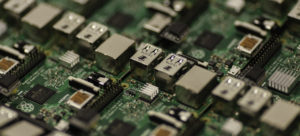Survey on State of the North American PCB M&A Market

Recently, my firm surveyed about 20 PCB manufacturers in North America with an estimated greater than $10 million in revenue. Quite a few replied, and we have spoken with many others throughout the year, which gives us a good view on the state of the PCB market. If I did not contact your shop recently, it is because we already talked within the last 12 months.
For the most part, the larger shops in North America are interested in acquisitions. Most are not too interested in adding a facility, unless it would add new capabilities or help them enter a new geographic market. Most buyers are interested in filling up existing capacity by moving the acquired company’s business into the buyer’s facility.
Although it was not a focus of this survey, we believe that many PCB shop owners are interested in selling now or in the next five years. However, given that buyers want to buy, and sellers want to sell, there are relatively few deals happening in the market. We count four so far this year (HT Global/Pho-Tronics, American Standard Circuits/Camtech, Compunetics/Circuits LLC, and TTM/Anaren-Unicircuits). We know of two deals that have not been publicly announced yet, and there are at least four shops that are on the market. There have been two announced closings in 2017, ITO Circuits and Sanmina-Owego.
According to the buyers we surveyed, here are some of the reasons why more deals are not happening:
- Sellers’ expectations of value are higher than what buyers want to pay. Many smaller shops are kind of a “lifestyle” business. That’s a great life, but buyers don’t want to pay much for that type of business.
- The value of the businesses may not cover debt, net current assets, or previous investments over the years. Therefore, owners may hold on until they are ready to throw the keys.
- Companies under $5-10 million have not invested in equipment, facilities, training, certification, etc., so a buyer will need to invest after a closing if they are going to keep the facility in place.
- Companies owned by families or with multiple partners have been tough to acquire. It is difficult to replace multiple people, and the corporate culture of the buyer might be quite different.
- Sellers do not want their shop to close, but most buyers do not want to maintain an additional facility.
- Many shops under $10 million in revenue are highly dependent on the founder, but if that person retires, much of the value of the company will disappear.
We would like to add that many smaller shops are not prepared for a sale, so their numbers are not accurate, their documentation is disorganized, and their response time is slow. All these factors lead to deals dragging on or dying, and/or offers being renegotiated.
Despite the above, we feel that deals will be happening in 2018. The PCB industry will continue to consolidate, as the average age of owners continues to rise, the cost of keeping up with equipment investments continues to climb, and the mismatch between seller and buyer expectations will narrow.
Our Predictions and Trends in 2018
- Foreign buyers: We believe several foreign PCB shops will make acquisitions in North America, particularly in the U.S., in 2018. This will be to get a foothold in the U.S., whether for a shot at U.S. military business, or to make prototypes here for production in Asia.
- Slow growth: Overall the North American market will not grow much, therefore, PCB shops must continue to take market share from others, or grow through acquisitions.
- Brokering: More North American PCB shops will get into the import/broker business (Advanced Circuits started, so why not?).
- Mega-mergers: At least one or two $1 billion+ deals in Asia: We expected a few mega deals in 2017, which did not happen unless you count TTM/Anaren.
- Middle-mergers: In addition to the mega-deals in Asia, we should see an increased number of deals in North America as well as shop closings. By our count, there are 212 PCB manufacturers now, of which 114 are under $5 million of revenue. We expect 10−20 acquisitions or closings per year, mostly of smaller shops, but also middle-mergers (two shops both in the $10−50 million range).
- Positive News: The U.S. administration’s America First policy, a trend towards “reshoring,” and increased defense spending may help U.S. board shops.
While the above does not paint a great picture of the industry, we have been hearing some good things about increased orders, large new projects, new investments in equipment, and even possibly some greenfield investments. The shops that are investing are doing well and are pushing into new technologies, which will continue to move the industry forward.
Tom Kastner is the president of GP Ventures, an M&A advisory services firm focused on the tech and electronics industries. Securities transactions are conducted through StillPoint Capital, LLC, Tampa, FL member FINRA and SIPC.
